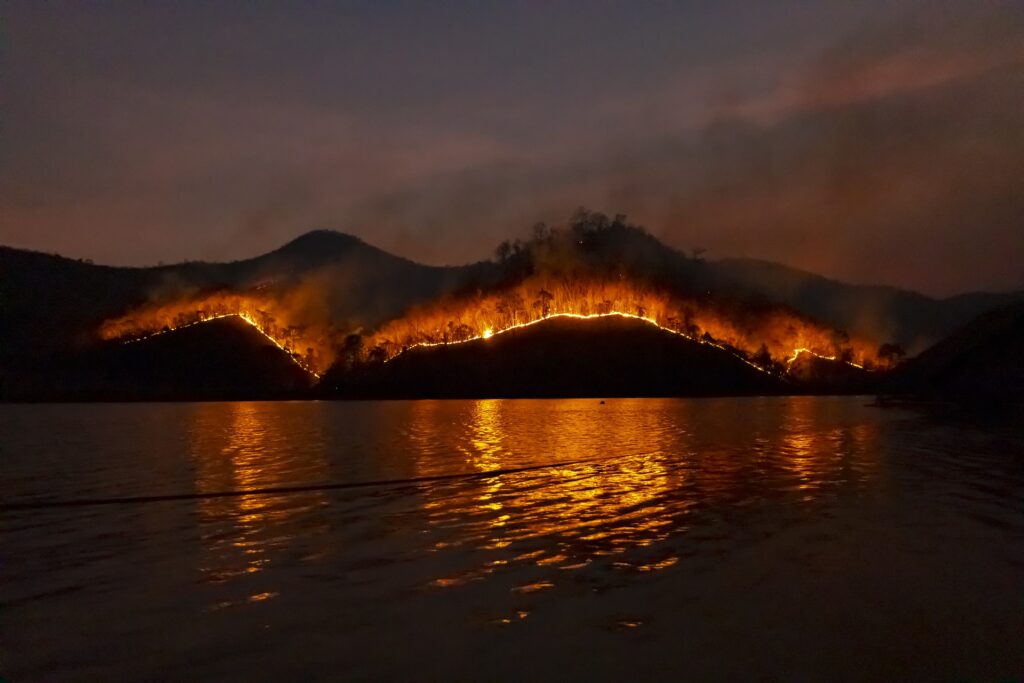Research published by the United Nations Environment Programme (UNEP) has predicted that wildfires around the world could increase by up to 14% by 2030, 30% by 2050 and 50% by the end of the century.
The report, which included contributions from the Met Office and the UK Centre for Ecology & Hydrology, found that some of the biggest increases will be in areas not typically used to seeing wildfires, such as the Arctic and Central Europe. Areas of tropical forest in Indonesia and the southern Amazon are also likely to see increased burning if greenhouse gas emissions continue at their current rate.
Scientists at the Met Office and the UK Centre for Ecology & Hydrology carried out modeling to predict future increases in wildfires for the report, Spreading like Wildfire: The Rising Threat of Extraordinary Landscape Fires.
They combined the most up-to-date satellite observations of wildfires, vegetation cover and meteorological conditions with multiple climate models, enabling the scientists to make projections for future fires with much more confidence than previously.
Although landscape fires are a natural process and, in some instances, needed for a healthy ecosystem, this report focuses on large, unusual fires (referred to as ‘wildfires’), and it’s the change in pattern of these wildfires that is causing most concern.
Dr Chantelle Burton, climate scientist at the Met Office and contributing author to the UNEP report, said, “We are already seeing the impact of climate change on weather patterns all over the world, and this is disrupting normal fire regimes in many regions. It is important for fire research to explore what is changing, what effect this could have on people and the environment, and what communities need to do to prepare.”
The research used two scenarios to examine potential future wildfire patterns: one where ambitious action is taken to reduce greenhouse gas emissions (RCP 2.6); the other to represent a scenario with only modest mitigation to reduce greenhouse gas emissions (RCP 6.0).
The study found that even if we reduce greenhouse gas emissions, there are likely to be more wildfire events by 2100 because global temperatures are continuing to rise and may reach 1.5°C to 2.0°C higher than pre-industrial times.
Dr Douglas Kelley, land surface modeller at the UK Centre for Ecology & Hydrology and lead data analyst for the report, said, “Wildfires can significantly affect the global carbon cycle. Fires in ecosystems that store large amounts of carbon result in the release of vast quantities of CO2 into the atmosphere. This exacerbates global warming, which in turn increases the risk of wildfires. Reducing global greenhouse gas emissions will avoid some of the biggest increases in wildfires in forests, peatlands and permafrosts, which will help limit warming and fires, as well as the impacts of people and wildlife.”
Camilla Mathison, contributing author and Met Office climate scientist, said, “Curtailing future greenhouse emissions reduces the risks of wildfires but does not remove it entirely, which means we also need to adapt to increases in burning in some regions.”



